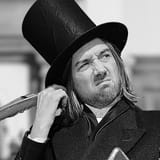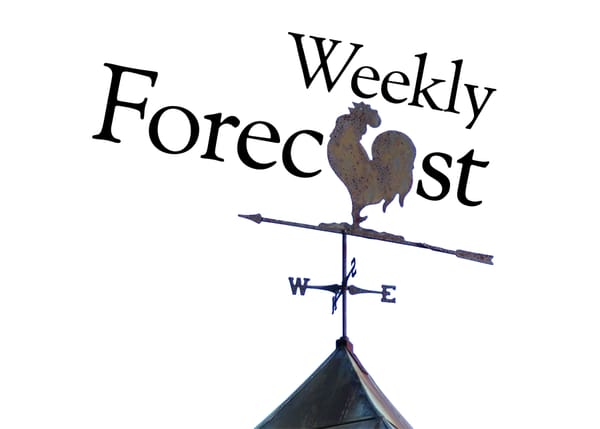In Which I Propose a Conspiracy
A hopeful thought, if an unlikely one

I was on a bus not long ago, for reasons that don't need explaining, with two conspiracy-theorist acquaintances of mine, and I got to overhear a long, informative conversation. I learned a few things about the government that deserve investigation, if true, but the best thing I heard was this nugget of wisdom:
"The only difference between a conspiracy theory and a fact is time."
I was sorely tempted to dispute that statement, but I would have had to join the conversation, where I was much happier listening from a distance. Also, if I'd made the point that you can distinguish rumor from fact, by means of a razor called evidence, they would have asked for evidence, and that would have opened a wormhole and carried the bus off to the Twilight Zone, so I'm glad I didn't.
It's a popular mode of thought—that if you hold a belief with enough resolve, time will prove it true. Self-help books have raked in millions on that premise, and the House of Representatives has run on that fuel since the days of Joe McCarthy. You can see why, too: If belief can alter facts, we can reshape the world any way we like it. And what if—just hear me out—what if it really works that way?
If it did, or could, we'd be foolish not to try.
How many people do you need, to have a real "conspiracy theory?" It can't be all that many. I bet, if you're all willing, we have enough between us.
Let's start with a small one to warm ourselves up. Let's suppose that Connecticut native Michael Bolton is taking after Taylor Swift, and paying AP sports reporters to pump the U of C in the men's college basketball rankings. (I know you're not sports fans, generally, but go with me here.) Let's all spend today concentrating our belief on that potential fact. If, by our concerted force of will, we can put UConn in the top spot in Monday's AP poll, we'll have our proof. (Maybe a few bucks, too.)
If we can do that, let's shoot for the big time! Starting Monday, let's be resolute in our certainty that Donald Trump died at Mar-a-Lago in 2021, and Mike Lindell paid scientists at Chuck E. Cheese to make an animatronic clone. For myself, I have no trouble believing this. If you'll believe it, too, and recruit your friends, I'm confident that by November the fact will be indisputable.





